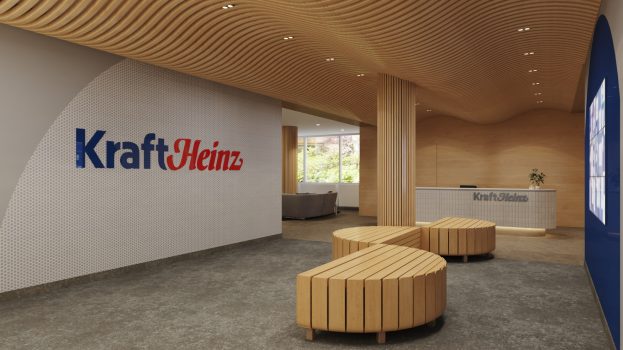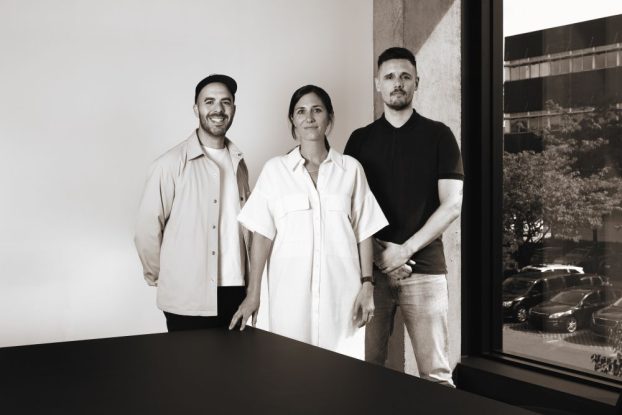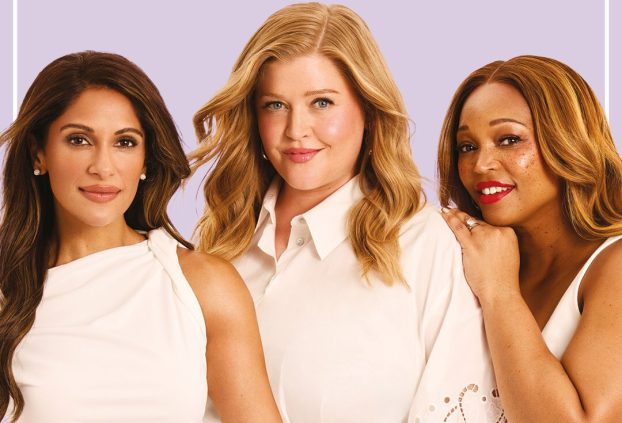‘What a year!’ says Alain Desormiers, president of Montreal-based Touché!PHD, of 2008. ‘We had incredible growth.’
PHD added nine clients to its roster, including Cirque du Soleil, Société des Alcools du Québec and New Balance. ‘There’s been a lot of momentum,’ confirms Fred Forster, president of Toronto-based PHD. ‘There’s been a coming together of the PHD network, which washes over us in a positive way and energizes everybody.’
Since the merging of PHD and Touché! in 2004, the global PHD network has grown from three offices in North America and the U.K. to include continental Europe, the Middle East and Africa.
Here in Canada, the partnership has been paying off. ‘When we decided to put our two agencies together, Alain and I agreed that there was a niche for us to fill,’ explains Forster. ‘There wasn’t really, as far as we could see, an agency that was truly integrated, with English and French.’
Both Forster and Desormiers acknowledge that one of PHD’s challenges in managing its growth is finding and keeping the best talent. The agency is one of the few media shops to invest in creativity with workshops and company-wide exercises. Passport to Innovation is an 18-month management-level program that was developed to foster creative-thinking skill-sets within the agency.
Balancing art and science, PHD also uses innovative tools and technologies to ensure it produces work based in strategic thinking, with a seamless connection to creative.
In 2006, it began introducing clients to neuroplanning – a proprietary process developed by PHD in the U.K. It gains insight into consumer thought and behaviour through neuroscientific methods combining psychology, psychophysics, fMRI (functional Magnetic Resonance Imaging) and marketing skills. And on the data management front, this year PHD started using the new Eloda Protocol web tool – launched by Montreal-based Eloda in February – which is designed for real-time tracking and management of TV ads.
That kind of pioneering work, in tandem with stand-out creative such as the Quebec Foundation for the Blind effort that was shortlisted at Cannes and Dove’s Sleepover for Self-Esteem, has helped drive new business growth over the past year. ‘They’ve really demonstrated the value that they add,’ says Alison Leung, marketing manager, hair and deodorant, Dove Canada. ‘They want to try new things, and they really want to be trailblazers.’
‘You can’t rest on your laurels,’ says Forster. ‘If you’re standing still, you’re going to get passed.’
VITAL STATS
Locations: Toronto, Montreal
Number of employees: 148
New hires:
• Alex Gillespie, account director
• Angela Genovese, account supervisor
• Chi Ip, account supervisor
• Mai Duong, digital strategist
• Thucloan Lieu, digital strategist
• Stephane Hue, SEM strategist
• Miriam Bernath, research
• Lindsay Durrant, account manager
• Vanessa Porter, account manager
• Ryan Gilroy, account manager
New business: Belron Canada, Olymel, New Balance, Cirque du Soleil, Agropour, Structube, CMC Markets, Certified Management Accountants (CMA), Société des Alcools du Québec
DOVE
The Dove Self-Esteem Fund (DSEF) encourages women of all ages to feel beautiful. To bring that message to life, PHD had to encourage mothers and daughters to participate in the Dove Sleepover – created by Toronto agency Capital C – while driving awareness of DSEF.
Through partnerships with Corus Entertainment and Astral Media, Dove issued a national invitation to consumers to visit dovesleepover.ca/soireedove.ca and get everything they needed to host or participate in a Dove Sleepover – from expert advice to exclusive PJ pants and music downloads. Over the course of the four-month program, PHD employed broadcast, online and magazine advertising and even a three-page feature in Parents Canada to promote the event.
On June 7, five networks simultaneously broadcast the Dove Sleepover for Self-Esteem, with programming hand-picked by PHD to support the brand messaging. In English, that meant movies suited to each network’s audience, such as Broken Bridges on CMT and Sisterhood of the Traveling Pants on YTV. In French, a series of top-ranked shows including Pièce d’identité and Mets-toi à ma place were paired with the French-language broadcast premiere of High School Musical.
During commercial breaks, moms and daughters discussed issues affecting young girls with global DSEF ambassador and acclaimed self-esteem author Jessica Weiner, in a series of custom segments. In French, segments featured Quebec celebrities, moms, daughters and Dove Self-Esteem expert Marie-Claude Lamarche sharing their personal stories.
The Dove Sleepover was an overwhelming success, earning 11 million impressions. Over 30,000 Canadians registered their own sleepovers, and a post-event survey indicated that 83% of mothers respected Dove more because of their support, and that such events made 62% of them want to purchase more Dove products.
QUEBEC FOUNDATION FOR THE BLIND
Research showed that the number one factor affecting quality of life for the blind is social rejection. To combat that stigma, PHD based its strategy on the insight that the best way to increase social acceptance was to have people experience the reality of blindness.
To accomplish that, they employed the element of surprise. Consumers would receive the foundation’s message where they least expected it – during television programming rather than in a commercial break. To be powerful, the concept needed a high-adrenaline environment where consumers would be greatly disappointed to miss the visual support of the television program.
In Canada, that meant hockey. PHD executed the stunt during NHL news coverage on French Canada’s most-watched sport channel, RDS. During primetime news, the TV screen blacked out while the sound continued to transmit as usual. After 10 seconds, a text appeared explaining that it was not a technical error, but rather a taste of what it’s like to be blind.
To avoid backlash, the stunt ran only once, with the agency team working directly from the station studios. It resulted in an increased number of calls for donations, as well as trade and mainstream press and a YouTube posting that became one of the most-watched videos in the Nonprofit and Activism category. The campaign was a finalist in the Public Service category at Cannes.
LEO & CHOC
In Quebec, chocolate milk was seen as something strictly for little kids. To get past that perception, Parmalat and BBDO created the animated characters Leo & Choc to entertain, engage and drive the 12- to 34-year-old target to an interactive website engineered to make chocolate milk cool.
To break through to this discriminating and savvy target group, PHD brought Leo & Choc to life in edgier, more mature media environments: cinema, print, online social networks and instant messaging, as well as video-game integration and iPod, wallpaper and mini-clip downloads.
The campaign launched with three 15-second cinema spots during the run of The Simpsons Movie. Print focused on free dailies and weeklies, such as Voir and Metro. The in-game advertising component integrated virtual billboards within Xbox 360 video games. Within social networks, PHD employed a new advertising format, a semi-transparent animated super above the selected video that gave the viewer a choice of clicking to follow Leo & Choc to their microsite or continuing to view the chosen video. A unique cost-per-engagement pricing model was introduced for this placement, instead of paying on a CPM basis.
Within five months, chocolate milk consumption had increased by 5%. Visits to the website increased by 234% vs. the previous campaign (more than 290,000 visits) and fans created over 28,000 animated clips, which received 103,000 votes. The campaign generated extensive blog coverage and Parmalat redesigned its chocolate milk boxes to feature the cartoons.
Jump to:
Media Director of the Year – Bruce Neve




















